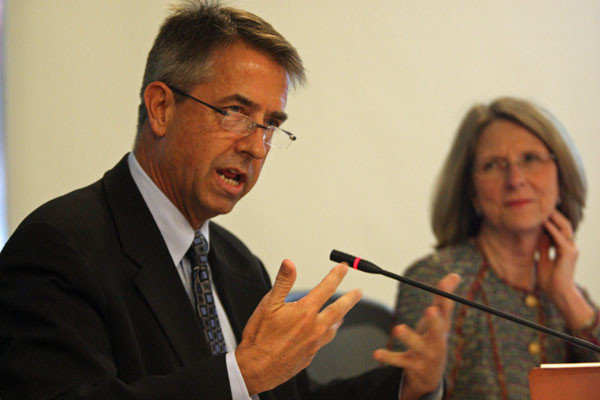State Senate Bill Would Create More Transparency for CA Health Care

SB 332, titled “California Health Benefit Exchange: records,” is designed to strip unusual secrecy provisions from the state agency created to oversee health care reforms. It was read in the California Senate a second time, amended, and re-referred to the Committee on Rules last week.
According to the Associated Press, the law that created Covered California, the state agency responsible for overseeing health care reforms, also grants the agency “broad authority to conceal spending on the contractors that will perform most of its functions,” adding that such authority could potentially prevent the public from seeing how hundreds of millions of dollars are spent.
In 2010, state lawmakers awarded the newly created Covered California the ability to keep contracts private for a year and amounts paid secret indefinitely.
If passed, the bipartisan SB 332, sponsored by Republican Sen. Bill Emmerson (Redlands) and Democratic Sen. Mark DeSaulnier (Concord), will reverse current law, ensuring that “public resources are managed efficiently and appropriately.”
Covered California made public its plans to spend nearly $458 million on vendors -- including lawyers, consultants and public relations advisers – by the end of 2014.
If SB 332 is approved by the Legislature, the bill will rid the provisions that allow Covered California to conceal pay rates on companies and individuals receiving contracts indefinitely, and will make public “meeting minutes and records that reveal recommendations, research or strategy of the board or its staff, or those that provide instructions, advice or training to employees.”
The bill states that a one-year delay in the release of contracts and a three-year delay for rates of pay will be allowed, which is intended to promote fair competition:
(a) Except for the portion of a contract that contains the rates of payments, contracts with participating carriers entered into pursuant to this title on or after the date the act that added this sub-paragraph becomes effective, shall be open to inspection one year after the effective dates of the contracts.
(b) If contracts with participating carriers entered into pursuant to this title are amended, the amendments shall be open to inspection one year after the effective date of the amendments.
(c) Three years after a contract or amendment is open to inspection pursuant to subdivision (b), the portion of the contract or amendment containing the rates of payment shall be open to inspection.
(d) Notwithstanding any other law, entire contracts with participating carriers or amendments to contracts with participating carriers shall be open to inspection by the Joint Legislative Audit Committee.”
Out of the 16 other states that decided to implement state-run health marketplaces under the Affordable Care Act, Associated Press found that the California agency was given powers that are “the most restrictive in what information is required to be made public, and that explicit exclusions from open-records laws might run afoul of the state constitution.”




